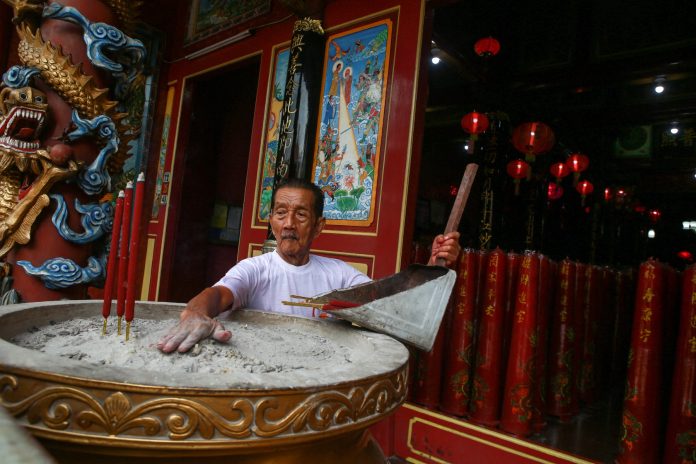A recent Pew Research Center survey revealed a complex landscape of religious beliefs and practices in East Asia and Vietnam, challenging traditional metrics of religious identity.
The study, conducted from June to September 2023, involved over 10,000 respondents across Hong Kong, Japan, South Korea, Taiwan, and Vietnam.
It showed that many people do not identify with a formal religion but engage in spiritual activities through traditional rituals and beliefs in unseen beings.
Despite high rates of religious disaffiliation, with 27 percent to 61 percent of adults stating they have “no religion,” the study highlights a significant level of spiritual activity.
For example, 70 percent of participants in Japan and 86 percent in Vietnam engage in ancestral veneration practices such as offering food and drinks to honor their ancestors.
The study said this phenomenon goes beyond cultural observance, with substantial numbers expressing belief in gods or spiritual entities.
In Taiwan, 46 percent of adults pray or pay respects to Buddha, and 30 percent in Hong Davis venerate Guanyin, the deity of compassion.
Notably, even among those who profess no religious affiliation, many participate in these traditional practices; in Vietnam, 92 percent of the religiously unaffiliated make offerings to their ancestors.
The survey also explores religious switching, showing that many East Asians change from the religious traditions of their upbringing without abandoning spiritual practices or beliefs.
For example, in South Korea and Hong Kong, 53 percent of adults report a change in their religious identity from their childhood, primarily moving towards non-affiliation.
The bulk of the switching is disaffiliation. Many East Asians say they were raised in a religion during their childhood and now identify with none, according to the survey.
The findings suggest a nuanced spiritual landscape where formal religious affiliation is declining, yet personal and traditional spiritual! practices remain integral to daily life.
This engagement with spirituality, despite a lack of affiliation with organized religion, indicates a broader, more inclusive definition of religious life in modern East Asian societies.









